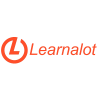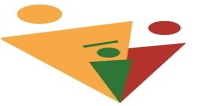How should homeschoolers vote?
Of the 10 largest parties, 8 published manifestos for the 2019 national and provincial elections. This article analyses the manifestos of these parties in terms of a number of questions that might be important to home educators.
For each party, a number of questions are answered:
- Does the manifesto list education as an election issue?
- Does the manifesto mention / acknowledge the role of parents in education?
- Does the manifesto mention home education? (√ = YES, - = NO, X = It is negative towards HE)
- Does their plan promote more liberty in education, as opposed to more state control?
- When going through the various manifestos a number of recurring themes were identified, such as curriculum, teacher training, monitoring, etc.
- The plans of the parties are summarised with a short statement of what the manifesto says about the theme.
- The summary is then evaluated in terms of whether it promotes more liberty or not.
The table below summarises the positions of the various political parties. Those highlighted in green indicate parties that have a manifesto that is beneficial to home education.
| Party | Election Issue | Parents | Home Ed | Liberty |
| ACDP | √ | √ | - | + |
| ANC | X | X | - | - |
| COPE | √ | √ | - | + |
| DA | X | √ | - | = |
| EFF | √ | X | X | - |
| FF+ | X | √ | √ | + |
| IFP | √ | X | - | = |
| UDM | √ | √ | - | = |
Below are details of the what the various election manifestos say about education.
ACDP
- The ACDP has chosen education as one of it’s election issues. It is number 3 of 7 with the title : “Substandard education and skills development”.
- The manifesto acknowledges the role of parents in education in the statement “Everyone should have access to quality basic education in safe, well maintained facilities; where parents are central to the education of their children;”.
- Home education is not mentioned in the manifesto.
- The plan for education is as follows:
Curriculum : Change the curriculum to be more career focused (Cambridge like)
Teacher training: Provide more teacher training
Monitoring: Re-introduce school inspectors
ECD: Make Grade R available at all schools.
Unions: Restrict union activities.
School boards: Strengthen and support school governing bodies and their independence.
Rural education: -.
Infrastructure: -
Language: -
Regulatory authority: -
This plan will increase liberty in education, because it empowers parents and governing bodies and reduces the power of unions. The ACDP also has a history co-operating with the home education movement and supporting their cause in parliament at various occasions.
ANC
- The ANC describes about 5 issues, and does not list education as one of them. Education is listed as one of the means to advance social transformation. It therefore does not view education as goal on its own, but merely as a means to achieve other objectives.
- The word “parent” only appears in the manifesto once, and then it is in the context of early childhood development. One of the promises is to Introduce two years of compulsory pre-school enrolment for 4 and 5 years olds, which means parents will lose even more control over the education of their children.
- Home education is not mentioned in the manifesto.
- The plan for education is as follows:
Curriculum : Change the curriculum to prepare learner for the 4th industrial revolution
Teacher training: Provide more teacher training
Monitoring: Introduce a new form of annual assessment
ECD: Introduce two years of compulsory pre-school enrolment for 4 and 5 years olds.
Unions: -
School boards: -
Rural education: -.
Infrastructure: Continue to replace inappropriate school structures and sanitation facilities.
Language: -
Regulatory authority: -
This plan will reduce liberty in education, because it introduces more compulsory schooling. Current legislative changes proposed by the ANC government also indicates that it aims to transform home education into a form of state education at home.
COPE
- COPE lists education as one of the things that needs a fresh start, and therefore it can be assumed that they regard education as an election issue.
- The word “parent” appears a number of times in the document in various contexts. They need to be educated about ABET and they to be need given education as well as practical skills. They therefore view parents mostly as people that need to be educated, and not people that need to do the education.
- Home education is not mentioned in the manifesto, but it is mentioned that home-based programmes need to be developed to support ECD.
- The plan for education is as follows:
Curriculum : Change the curriculum to prepare learners for the 4th industrial revolution
Teacher training: Provide more teacher training through reintroducing education colleges. Use education trainees in schools.
Monitoring: Establish a continuous performance monitoring and appraisal system for education professionals.
ECD: Promote ECD through home based and community-based programmes, and education of parents.
Unions: Do not allow unions to influence management of schools and appointment of teachers.
School boards: Devolve professional development (CPD) to school governing bodies.
Rural education: Adopt interdisciplinary Wellness Centre model to support rural learners.
Infrastructure: -.
Language: Mother tongue education up to Grade 3.
Regulatory authority: -
Generally the COPE plan promotes the authority of parents, communities and school governing bodies, and therefore this plan can be viewed as one that promotes liberty in education.
DA
- The DA lists 3 issues in its manifesto and education is not one of them.
- The word “parent” appears a number of times in the document. One of the promises they make is that parents will be able to view reports compiled by a Schools Evaluation Authority (SEA). The DA also envisions more parental involvement in schools that are operated in collaboration with the private sector. Parents are also mentioned in their description of the Walking Bus initiative where they are allowed to accompany children to school. However, the proposal to introduce boarding schools to accommodate rural learners indicates that the constitutional right to parental care is not important to the DA.
- Home education is not mentioned in the manifesto.
- The plan for education is as follows:
Curriculum : Change the curriculum to prepare learners for the 4th industrial revolution
Teacher training: Provide more teacher training
Monitoring: Establish National Education Evaluation Inspectorate and international assessments
ECD: Implement a per-child Grade R subsidy from the state to all public schools, allowing fee-free access to Grade R at fee-free schools.
Unions: Declare principals as ‘essential services’ at all schools (to ensure that the rights and safety of our children are protected during strike action)
School boards: Providing greater autonomy to schools and school governing bodies.
Rural education: Increase the number of public boarding schools to allow children in rural areas to attend schools
Infrastructure: Allowing for private sector involvement in public schools.
Language: -.
Regulatory authority: -
On the one side it improves education liberty, because it proposes more autonomy for schools and governing bodies. However on the other side instead of trusting and empowering parents and communities, the DA promotes the introduction of boarding schools, that will break up families and communities. It attempts to improve education in rural areas through centralisation, as opposed to the decentralised proposal of COPE for example. On average, this plan is therefore neutral on liberty in education.
EFF
- The EFF lists 27 issues in its manifesto, and education is one of them.
- Parents are mentioned once, only to be declared criminals. “The EFF government will criminalise all parents who do not take their children to school.”
- Home education is not mentioned in the manifesto, but it can be deduced that the EFF will ban home education, given the above statement about education.
- The plan for education is as follows:
Curriculum : Change the curriculum to a decolonised curriculum.
Teacher training: Provide more teacher training.
Monitoring: Abandonment of IEB.
ECD: Introduce compulsory pre-school enrolment for children 3 years and older.
Unions:-.
School boards: -.
Rural education: Increase the number of public boarding schools to allow children in rural areas to attend schools.
Infrastructure: Electricity, water, meals, transport, tablets, sports facilities at all schools.
Language: Introduce vernacular languages and sign language.
Regulatory authority: -
The plan reduces liberty in education, because is bans home education, takes away the freedom of multiple examination boards and increases compulsory schooling.
FF+
- The FF+ lists 5 focus areas, but education is not one of them.
- Parents are mentioned in a context of having control over the education of their children.
- Home education is mentioned pertinently as follows : “Parents who prefer to home school their children must have the right to do so as long as they can prove that they possess the necessary skills, knowledge and learning aids. External exams written at the end of Grade 9 and Grade 12 can be used to monitor the quality of home schooling."
- The plan for education is as follows:
Curriculum : -.
Teacher training: -.
Monitoring: Schools must be able to exercise the right to choose whether it wants to fall under the administration of the provincial Department of Education or the administration of a community council.
ECD: Must be moved to Dept. of Basic Education and expenditure must be increased.
Unions: Trade unions must be replaced by a conciliation and arbitration system.
School boards: -.
Rural education: -.
Infrastructure: -.
Language: Learners must have access to mother-tongue education.
Regulatory authority: Community councils that can demonstrate the ability to do so, must be given the right to act as an education department across provincial boundaries.
This plan will increase liberty in education, because it empowers parents and governing bodies and reduces the power of unions.
IFP
- The IFP lists 8 and Education is the third.
- Parents are not mentioned in the manifesto.
- Home education is not mentioned in the manifesto.
- The plan for education is as follows:
Curriculum : -.
Teacher training: Reopening of teacher training colleges.
Monitoring: -.
ECD: Must be prioritised and moved to Dept. of Basic Education.
Unions: -.
School boards: Encourage greater support for NGO's and NPO's.
Rural education: Re-open and capacitate rural and township schools.
Infrastructure: Regular maintenance and additional school infrastructure development.
Language: -.
Regulatory authority: -.
This plan will have no impact on liberty in education. On the one had it encourages ECD, which will take away freedom from parents, but on the other hand it encourages smaller local schools.
UDM
- The UDM lists 10 focus areas, and education is number 4.
- Parents are mentioned in a context of establishing a saving fund in which the state and private sector can contribute towards the tertiary education of a child.
- Home education is not mentioned in the manifesto.
- The plan for education is as follows:
Curriculum : A permanent commission to be established to ensure curriculum stability.
Teacher training: Provide more teacher training.
Monitoring: Re-introduce school inspectors.
ECD: -.
Unions: -.
School boards: -.
Rural education: -.
Infrastructure: Prioritise the building, fixing and upgrading of school infrastructure.
Language: -.
Regulatory authority: -.
The manifesto does not give any indication on whether this plan will increase of decrease liberty in education.

Events
Legal & Research
Centres
Homeschool ABC
Support
Curriculums
GED through Learnalot - Grade 12 ...
Why enrol with Learnalot? With Learnalot, you have the flexibility ...
Ginini Training Institute
Ginini Academy is an EdTech home education content provider ...
Learn, code and create with Ubbu
Introducing ubbu!An Adventure of Code and Play! Learn, Code ...
Has no content to show!































Comments 3
Thank you sir for the research that you have done. I would really appreciate it if you would add ACO (African Covenant) to your list. A new God-fearing party with Godly values and with a very positive approach towards home-schooling.
Thank you for taking the time and effort to analyze the different manifestos. Your summary is concise and an eye opener.
Thanks for your feedback. It is encouraging to read that ACO has a positive approach towards home education. As the article states, I compare the parties purely based on the content of the 2019 election manifestos. In the interest of fairness, I would need to compare ACO in terms of their manifesto. Please let me know when this is published on the ACO website.